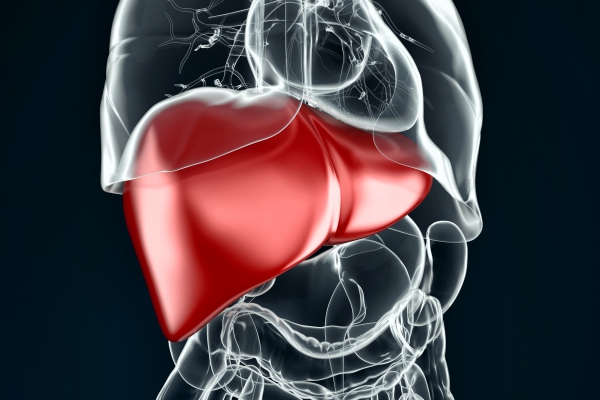Irritable Bowel Syndrome, Digestive disorders, Constipation, Diarrhea, Abdominal pain
Description : Irritable bowel syndrome (IBS) is a condition affecting the digestive system. It is a chronic
Article Details :
What is Irritable bowel syndrome?
Irritable bowel syndrome (IBS) is a condition affecting the digestive system. It is a chronic condition characterized by abdominal pain and altered bowel movement (constipation and/or diarrhoea) which cannot be attributed to any other cause. It is the most common condition affecting the gastrointestinal tract diagnosed and is the second most common cause of absenteeism at work.
Around 10-20% of the general population experience the symptoms of IBS. Only about 10-20% of these people actually seek medical help. The condition is more prevalent among adolescents and young women. Women are 2-3 times more prone to have the disease compared to men.
IBS can often be associated with other medical conditions such as chronic fatigue syndrome, fibromyalgia, gastroesophageal reflux disease and some psychiatric disorders. The symptoms of irritable bowel syndrome can be kept under control through several lifestyle modifications.
What are the causes of Irritable bowel syndrome?
The exact cause of IBS is not known up to date. However, several theories explain possible causes of the disease including:
- Abnormal contractions of the intestines: This suggests that vigorous contraction of the bowels is the principal cause of abdominal pain in people with IBS.
- Recent infection of the digestive tract: It has been observed that some people develop IBS following an infection from Salmonella or Campylobacter. However, the mechanism through which it is triggered is not known.
- Stress and anxiety: Stress and anxiety has been found to worsen symptoms of IBS.
- Food allergies and intolerances: People with IBS commonly have food allergies or intolerances. The exact link between them is however not known. Certain foods, however, may worsen IBS symptoms. Some examples include dairy products, beans, and certain vegetables.
- Overactive bowels: This theory suggests that IBS is caused by overactive nerves supplying the bowels. This results in normal amounts of gas or movement felt as excessive and intolerable.
What are the symptoms of Irritable bowel syndrome?
The symptoms present in IBS are as follows:
- Abdominal pain: This is a long-standing cramp-like pain which varies in intensity and worsens periodically. The location of the pain varies among different people. In some cases, the pain can be mild while it can be severe in others. In some people, the pain may be relieved with defecation while in others, it can make it worse.
- Altered bowel movements: This includes diarrhoea and constipation. Some people may have alternating diarrhoea and constipation or normal stools alternating with either diarrhoea and/or constipation. These usually occur in the morning or after eating. Many people have experienced having mucus in their stools. Tenesmus can also occur in IBS, which is the sensation that you have to pass stools even if your rectum is empty.
- Bloating or abdominal distension: This is a common symptom in IBS. The abdomen may be found increasing in size throughout the day.
How is the diagnosis of Irritable bowel syndrome made?
Your doctor will start by asking you a series of questions about your symptoms. He/she will then proceed with a thorough physical examination.
There is no specific test to make the diagnosis of IBS. Your doctor may request some tests to rule out other possible medical conditions that can mimic IBS. Some examples include malabsorption, inflammatory bowel disease, coeliac disease and colitis. Once these are ruled out, your doctor will use the Rome criteria to make the diagnosis of IBS. This criteria consists of certain symptoms including abdominal pain related to defecation, altered bowel movement and change in stool appearance.
If you have any suspicious symptoms such as blood in stools, weight loss, fever, frequent vomiting, anemia or you are aged above 40 years, your doctor will perform more advanced tests to check if there is any other pathologies present.
How is Irritable bowel syndrome treated?
The first step in the management of IBS is to closely monitor your symptoms and bowel patterns. You should identify what are potentially worsening your symptoms such as particular foods or emotions. The management of IBS also include the following:
- Diet changes: If you have noticed that certain food products make your symptoms worse, it is essential for you to avoid them. However, you should always talk about it to your health care professional before withdrawing certain foods, as eliminating them without assistance can worsen the symptoms. In many cases, doctors recommend avoiding dairy products temporarily as they are known to worsen symptoms in many people. Foods that causes gas may also be eliminated temporarily. These include legumes, cabbage, cauliflower, broccoli amongst others. It is also recommended to increase your intake of dietary fibre as it can improve IBS symptoms.
- Psychosocial therapies: Psychotherapies may be useful in people who are stressed and have anxiety as these can make IBS worse. You should be open to your doctor and discuss about your concerns and the possible contribution of stress and anxiety to your medical Read more















